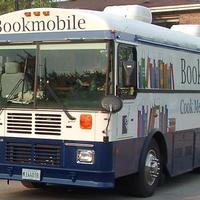Libraries are trusted community organizations that can provide services to senior citizens such as job skills training classes, information on benefits and healthcare services senior citizens are eligible for, and social groups that can combat isolation. Libraries, "place-based institutions with historical roots in the communities they serve," can be challenged to be re-imagined as part of the solution for healthy ageing and ageing in place. Libraries are such invaluable resources because they are free, accessible, a trusted community resource, already incorporated in the community, and already utilized by vulnerable populations such as immigrants and the elderly. Librarians are trained researchers and have skill sets that can be used to increase health literacy and educate people of all age groups on consumer health. Libraries have an important role to play in coordinating volunteer opportunities, and in helping individuals to re-enter the workforce by understanding where the local job gaps are and how to fill them by offering career training course and computer skills classes, as well as. Libraries can provide these services by partnering with local businesses to provide job skill training designed. Some of these services may be a familiar feature of libraries the UK, but in the USA they something new. We shouldn’t underestimate the benefits they can provide if they are properly funded and exploited as civic amenities. Libraries are becoming increasingly active in ways that can benefit a growing older population.
The Baton Rouge library system, like many others in the US, have a senior bookmobile which makes regular stops at senior centers and retirement homes to deliver library materials to the residents. It has books (many in large print), audio-visual materials, and a Bookmobile librarian to assist seniors in their selection of reading. The Bookmobile is an example of how libraries are helping older people with severe physical handicaps stay engaged and able to access books. An idea for libraries to help older people with physical disabilities would be to expand services on the bookmobile to include services found already in the physical library location that can assist older people with problems related to finances, health and nutrition, and isolation.
Libraries can even receive funding to provide health services to individuals and stay up-to-date with the fast-growing and complicated body of consumer health information. The Pima County Public Library in Arizona has partnered with the local Health Department to bring trained public health nurses specializing in homelessness and mental health issues in the downtown library branch. The program was successful, library patrons valued the services the nurses offered and there were less behavioral incidents at the library. Libraries can also provide services that help adults that experience food insecurity, in 2015 2.9 million households with an adult aged 65 or older experienced food insecurity. 3/5ths of adults over 60 are eligible for Supplemental Nutrition Assistance Program (SNAP) but are not enrolled. Libraries could provide informational sessions on the benefits available to low-income seniors and make programs. Libraries can also be a public health asset by providing a health nurse who can answer questions seniors have.
Some libraries are even assisting seniors with affordable housing, such as Alexandria, VA which built affordable housing in abandoned office buildings with labor force training and job facilities on the lower floor, allowing seniors to walk a short distance to work. Partnerships between libraries and affordable housing developments can help create the library as the center of older adult's social, education, and community life. Sunset Park Library in Brooklyn, NY, is looking to redevelop 49 affordable housing units with a new library below.
Libraries can also help seniors feel less isolated and help food insecure seniors by providing meals, such as having Meals on Wheels delivered to libraries so people can eat together instead of separately in their homes. The San Diego Public Library serves meals to older adults in libraries and invites other library patrons to join. Libraries, often known to offer computer skill classes, can pair young volunteers with older adults to help them with new technology. Programs such as chess clubs, knitting clubs, small concerts, and dance classes can help older adults stay social and connected in their communities. Libraries can also assist with making older adults feel less isolated by providing accessible transportation to and from their events and making their events available to those who speak languages other than English or may not speak English well. Also by coordinating volunteer programs, libraries can help seniors who are able get out in their community more or even prepare to re-enter the workforce.
About the Author
Bob McNulty, Visiting Fellow, Oxford Institute of Population Ageing, CEO, Partners for Livable Communities, USA.
Comments Welcome
We welcome your comments on this or any of the Institute's blog posts. Please feel free to email comments to be posted on your behalf to administrator@ageing.ox.ac.uk or use the Disqus facility linked below.
Opinions of the blogger is their own and not endorsed by the Institute
Comments Welcome: We welcome your comments on this or any of the Institute's blog posts. Please feel free to email comments to be posted on your behalf to administrator@ageing.ox.ac.uk or use the Disqus facility linked below.













